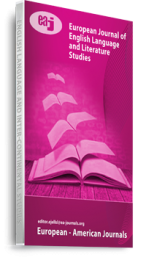The fundamental concern of this paper is that the process of naming in the short writings from Bulawayo, the ‘ City of Kings’ that includes short stories and poems encodes the ideological envision of Bulawayo as the second largest city in Zimbabwe. The last hundred years’ social history of Bulawayo has been sculpted alongside the broader Zimbabwean national history, by particular circumstances of colonial conquest occupation; of colonial capitalism, with its lopsided economy, a system of circulatory labour migration; and of policy controversies and resistance regarding the control of space: physical, social, political, psychological, and historical. This paper presents that these factors are typical of most cities in Southern Africa. What distinguishes Bulawayo an urban centre is not only its distinct socio-historical experience with white settler governments and social change but also its experience with the Zimbabwe African National Union- Patriotic Front (ZANU-PF) government in the post-independence period, which has been characterised by politics of exclusion and attempts to obliterate the experiences of the Ndebele ethnic group in the national cultural symbols. Antroponyms, geographical names, names based on history and brand names, used by authors in short writings from Bulawayo, have a telling effect as they capture the cultural heritage and identity of the City of Bulawayo. The paper draws its examples from an understanding that the postcolonial period, within which Zimbabwe as a country celebrated its independence in 1980, has witnessed a massive drive towards renaming of streets, buildings, places, schools, and other social amenities in order to recapture the identity of Bulawayo and represent its peculiarity to the other cities in Zimbabwe and the whole world in general. Also of note has been the overriding need to preserve the exploits of the liberation war icons from Matabeleland. The continued redefinition of the history of Bulawayo, particularly in the post-2000 period characterised by extensive closure of companies and de-industrialisation, has been a major concern as the short writings have shown an attempt to restore the glamour of Bulawayo and the subaltern representation that has characterised the City as a marginalised entity in comparison to other cities such as Harare. In the final analysis, this paper engages with both the theoretical and literary discourses of regionification, nationhood and representation as forms of identity creation. In this light, the paper uses the socio-historical approach to premise its arguments.
Keywords: Bulawayo, Ideology, Region, Short Writings, Subaltern

